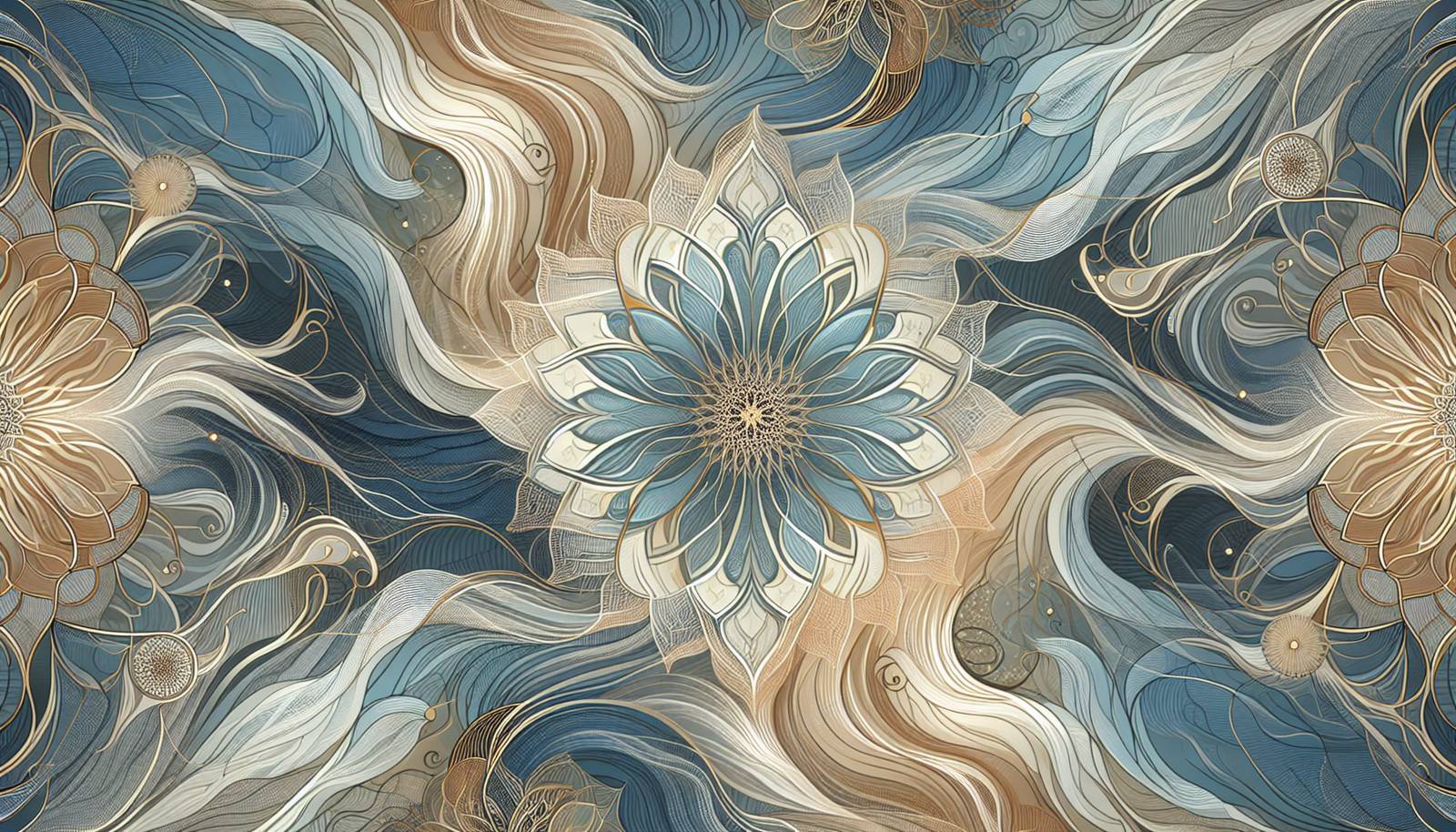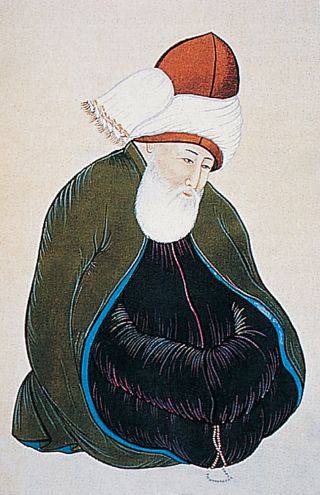
FAQ About Rumi

Who was Rumi?
Rumi, also known as Jalal ad-Din Muhammad Rumi, was a 13th-century Persian poet, Islamic scholar, theologian, and mystic of the Sufi tradition. He was born on September 30, 1207, in Balkh in present-day Afghanistan and passed away on December 17, 1273, in Konya, present-day Turkey. Rumi's poetry, especially his six-volume epic work the Masnavi, has had a lasting influence on Persian literature and spiritual thought worldwide.

What are the main themes in Rumi's poetry?
Rumi's poetry predominantly explores themes of love, spirituality, and human connection. His works often focus on the concept of divine love as a path to spiritual enlightenment and unity with the divine. Rumi also reflects on the nature of the human soul, the importance of introspection, and the interconnectedness of all beings.

Why is Rumi often associated with Sufism?
Rumi is associated with Sufism because he was a follower of the mystical Islamic belief system that focuses on the inward search for God and the purification of the soul. His poetry and teachings are often infused with Sufi principles and practices, encouraging a spiritual journey through love and devotion. His works have been integral in the promotion and understanding of Sufi thought and practice around the world.

How did Rumi's relationship with Shams of Tabriz influence his work?
Rumi's relationship with Shams of Tabriz was pivotal in his development as a mystic and poet. Shams was a wandering dervish who became Rumi's close friend and spiritual mentor. Their intense spiritual connection inspired Rumi to compose much of his poetry, especially the Diwan-e Shams-e Tabrizi, which reflects the profound impact Shams had on his life. The disappearance of Shams deeply affected Rumi and is thought to have driven him further into spiritual and poetic reflection.

What impact has Rumi's work had on modern literature and spirituality?
Rumi's work has had a profound and lasting impact on both modern literature and spirituality. His exploration of love, unity, and spirituality resonates across cultures and religions, making his poetry timeless and universal. Rumi is one of the best-selling poets in the United States, and his works are referenced in various spiritual texts, workshops, and practices worldwide, emphasizing their widespread appeal and influence.

Are Rumi's works available in English?
Yes, many of Rumi's works have been translated into English and various other languages. Numerous translations exist, each offering different interpretations of his verses. Notable translations include works by Coleman Barks, who has popularized Rumi in the English-speaking world, presenting his poetry in a way that captures its essence while being accessible to contemporary readers.

Did Rumi found any specific spiritual orders or schools?
Rumi did not found a specific spiritual order himself, but his teachings and the practices associated with him led to the establishment of the Mevlevi Order, also known as the Whirling Dervishes. This Sufi order, founded by his followers after his death, emphasizes the practices of meditation, music, and dance, reflecting the spiritual themes found in Rumi's works.

What are some of Rumi's most famous poems?
Some of Rumi's most famous poems include the opening lines from his Masnavi, such as "The Song of the Reed," and various ghazals from the Diwan-e Shams-e Tabrizi. His poems often focus on topics such as love, divine union, and spiritual awakening, with memorable lines like "The wound is the place where the Light enters you" capturing the essence of his inspirational messages.

Why is Rumi's poetry still relevant today?
Rumi's poetry remains relevant today due to its timeless exploration of universal themes such as love, spirituality, and personal growth. His insights into the human condition and the pursuit of a deeper understanding resonate across different cultures and traditions, appealing to the inner spiritual yearning of people worldwide. Rumi's ability to bridge cultural and religious divides makes his work continually appealing to modern audiences.

Where can one find Rumi's original manuscripts?
Some of Rumi's original manuscripts and copies of his works can be found in libraries and museums in regions that were part of the Persian Empire. Notable collections are preserved in Turkey, particularly the Rumi Museum in Konya, which houses a range of artifacts and writings attributed to Rumi. These collections provide valuable insights into the historical context and dissemination of his poetry.

How did Rumi's early life influence his poetry?
Rumi's early life had a significant influence on his poetry and spiritual development. Born in a region rich in culture and intellectual thought, Rumi was introduced to various religious and philosophical traditions from an early age. His family fled the Mongol invasions, traveling extensively, which exposed Rumi to diverse cultures and ideas. This multicultural backdrop, combined with his father's teachings and later encounters with spiritual figures like Shams of Tabriz, deeply shaped his worldview and poetic expression.

What role does love play in Rumi's teachings?
In Rumi's teachings, love is considered the central force that connects humans with the divine. He often describes love as a transformative power that can lead to personal growth and spiritual enlightenment. Rumi sees love as transcending physical form, guiding individuals towards a deeper understanding of themselves and their place in the universe. His poetry frequently celebrates love as the ultimate path to divine unity and fulfillment.

How does Rumi's work reflect the principles of Sufism?
Rumi's work deeply reflects the principles of Sufism, which emphasizes the inner, mystical dimension of Islam. His poetry often highlights themes such as the pursuit of truth, the love of God, and the importance of self-awareness and spiritual awakening. Through allegory and metaphor, Rumi conveys messages of detachment from worldly desires and emphasizes a return to divine love as the ultimate spiritual goal, which are key elements of Sufi practice.

What are some of the symbolic elements used in Rumi's poetry?
Rumi's poetry is rich with symbolic elements drawn from nature, human experience, and spiritual allegory. Common symbols include the reed, representing the soul's cry of separation from the divine; the moth and the flame, symbolizing the soul's yearning for divine love; and the journey or path, reflecting the pursuit of spiritual enlightenment. These symbols help convey deeper philosophical and spiritual meanings in his works.

How did historical and cultural contexts affect Rumi's writings?
Historical and cultural contexts greatly influenced Rumi's writings. Living during the 13th century, a period marked by political upheaval and the Mongol invasions, Rumi's poetry often reflects themes of peace, inner strength, and spiritual refuge amid chaos. The cultural intersections between Persian, Islamic, and Anatolian traditions are evident in his use of language, narrative styles, and philosophical ideas, creating a rich tapestry that speaks to diverse audiences.

What languages did Rumi write in?
Rumi primarily wrote in Persian, which was the literary language of his time and region. His works, however, also show influence from Arabic, Turkish, and Greek, reflecting the multicultural environment of the Persian Empire and the diverse audience his works addressed. Despite the language differences, his universal themes have allowed his poetry to transcend linguistic barriers.

How is Rumi celebrated in modern times?
Rumi is celebrated today in various ways, including through international festivals, translations of his works, and the performances of the Mevlevi Order's Whirling Dervishes. His poetry is quoted in spiritual and motivational contexts, featured in music and visual arts, and continues to inspire readers and spiritual seekers around the world. In Konya, Turkey, events are held annually to commemorate his life and teachings, attracting visitors worldwide.

Did Rumi's teachings influence any other notable figures?
Rumi's teachings have influenced a wide range of notable figures across different fields. His spiritual and philosophical insights have been appreciated by poets, writers, and philosophers such as Johann Wolfgang von Goethe, Ralph Waldo Emerson, and Deepak Chopra. Scholars and spiritual teachers continue to draw upon Rumi's ideas to enrich their own works in literature and spiritual discourse.

What is the significance of the date December 17th for Rumi followers?
December 17th is the anniversary of Rumi's death, known as Shab-e Arus or "The Night of Union." It is a significant date for Rumi's followers, symbolizing his union with the divine. Every year, ceremonies are held in Rumi's mausoleum in Konya, Turkey, where followers gather to commemorate his life and teachings through music, poetry readings, and the Whirling Dervish dance.
